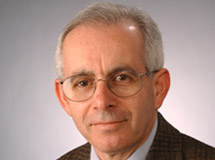Is a More Sustainable Olympics Possible?: Q&A With Maxwell Professor Matthew Huber
Organizers of the 2024 Paris Olympics are committed to creating the most sustainable Games ever—limiting new construction, sourcing local food and using 100% renewable energy, for example. But could a global event with millions of people from all over the…


 Amos Kiewe, professor and department chair of Communication and Rhetorical Studies and an expert in political rhetoric, answers a few questions on speeches at the just-concluded political conventions.
Amos Kiewe, professor and department chair of Communication and Rhetorical Studies and an expert in political rhetoric, answers a few questions on speeches at the just-concluded political conventions.